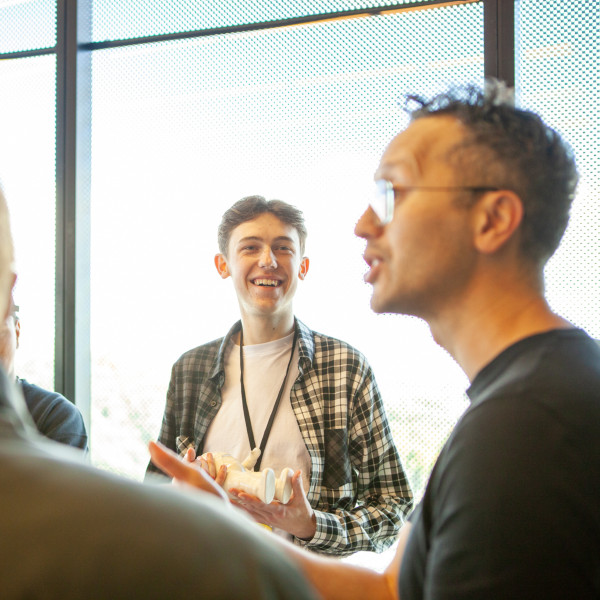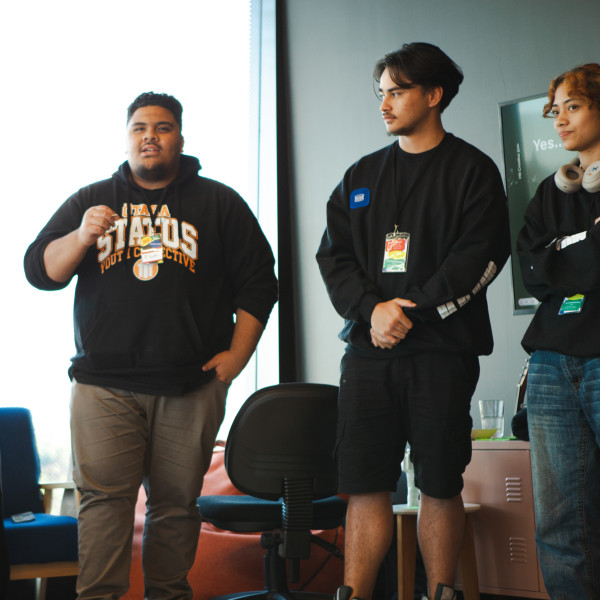Young New Zealanders say they aren’t connecting with media coverage and campaigns about vaping because they don’t see themselves reflected in them.
“Young people don’t want to hear from the CEO of Te Whatu Ora, they can’t relate to them,” says 18-year-old Ethan Reille.
“They want to hear from the other bros who are out there doing it tough, or the ones who have had that lived experience.”
That’s why rangatahi have done the mahi themselves. Over the past year the Hā Collective, a group of Māori and Pasifika rangatahi aged 16 to 20 went into their own communities to understand why young people vape leading to Protect Your Breath - a campaign by and for rangatahi.
Young people are vaping to cope with social anxiety
Ethan, who used to vape himself, says stress and anxiety were the biggest reasons people as young as 13 were reaching for the vape.
Research by the Hā Collective found 53% of daily vapers feel stressed out or worried every day, compared to 33% of non-vapers.
Some young people were also vaping because they saw it as a less harmful coping mechanism compared to alcohol or other drugs, or self-harming, the research found.

Ethan says young people are vaping to cope with anxiety. Photo: supplied
“There's so much social anxiety, especially post Covid-19. The comfort that a vape offers you is really underestimated, whether that be as a fidget tool, a way to relieve pressure or a way to fit in by using it,” Ethan says.

Elijah Tiatia (left) says some young people are vaping to rebel against their parents. Photo: Supplied.
Elijah Tiatia, who along with Ethan helped work on Protect Your Breath, says within Pasifika and Polynesian communities the standards and expectations that fall on young people are also driving people to vape.
“Being the eldest and having to work to support your family or being the first in your family to go to university - it’s that pressure that makes you want an escape. And when you’re in the middle of studying, there isn’t an easier or more accessible escape than pulling out the vape.”
Elijah also found that teens were vaping because it was another way to rebel.
“A lot of people knew that their parents would respond negatively but they did it anyway,” he says.
Vaping is introducing some people to smoking cigarettes
Vaping is endorsed as a healthier alternative to cigarettes that can help you quit smoking.
On the surface, vaping has been successful at reducing smoking with youth smoking rates decreasing from 2% in 2019, to 1.3% in 2021.
But the catch is vaping rates have drastically increased among people who have never smoked too.
The percentage of young people vaping daily has more than tripled between 2019 and 2021. And vaping amongst those who have never smoked cigarettes increased from 4.7% to 10% in 2019.
Now, the complete opposite intention of vaping is a reality.
Ethan says “some of my friends who went straight to vaping are turning to cigarettes now that vaping isn’t hitting that sweet spot anymore”.
“It’s quite shocking to see what the addiction actually does to you.
“We decided to do ‘no nicotine November’ to see how long people can last without vaping and people are definitely noticing withdrawal symptoms like being constantly sweaty, anxious and irritated,” he says.
Success is about starting a conversation
The video animation campaign will be visible on social media, digital bus shelters near schools, and gaming and music streaming platforms.
A campaign website has also been developed to support and educate friends and whānau about youth vaping.
Ethan and Elijah aren’t expecting Protect your Breath to change anyone’s vaping habits
“This isn't an anti-vaping campaign, it's not about villainising those that choose to vape. It's more about offering a platform to inform rangatahi and gather as much cultural perspective as we can to understand why people vape to begin with,” Ethan says.
“I'm more hoping that it just spreads more awareness and breaks down the stigma to open up those conversations that we have.”
Elijah says the aim is to hear the experiences that cause people to vape to begin with and start to offer help there.
“You can't blame people for vaping, you can only help them move forward and access other coping strategies.
“For example, we look at how the five senses can help relieve stress? What can you smell, hear, feel, say or look at that helps you escape reality and sort of places you in a different world for a bit. It can be working out, cooking or writing music - anything.”
Te Whatu Ora regional director Hayden McRobbie says $2.8m over three years has been set aside to support Protect your Breath.
“This campaign is part of a broader strategy and it sits alongside the other actions in the Smokefree Aotearoa 2025 Action Plan including future campaigns to encourage people to quit smoking, more investment in stop smoking services and legislative changes to support our Smokefree goal,” McRobbie says.
“Protect your Breath will aim to provoke conversations, and encourage people to consider the impact of vaping on themselves and their communities.”
Where to get help:
- 1737: The nationwide, 24/7 mental health support line. Call or text 1737 to speak to a trained counsellor.
- Suicide Crisis Line: Free call 0508 TAUTOKO or 0508 828 865. Nationwide 24/7 support line operated by experienced counsellors with advanced suicide prevention training.
- Youthline: Free call 0800 376 633, free text 234. Nationwide service focused on supporting young people.
- OUTLine NZ: Freephone 0800 OUTLINE (0800 688 5463). National service that helps LGBTIQ+ New Zealanders access support, information and a sense of community.
More stories:
Hey, NZ Rugby - could you take women’s rugby seriously now?
“They need more women's voices at all sorts of levels.”
In photos: celebrating Sāmoa’s win in the Rugby League World Cup
Sāmoa becomes first Pacific nation to make it to a Rugby League World Cup final.
Whānau, the 21 year-long doco following the lives of 'ordinary' whānau
Director Parehuia was five years old when the first instalment of ‘Whānau’ was released.